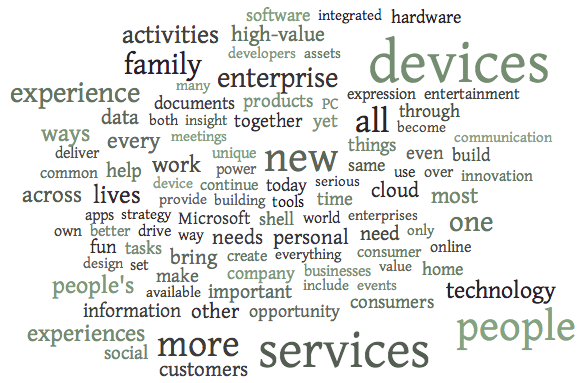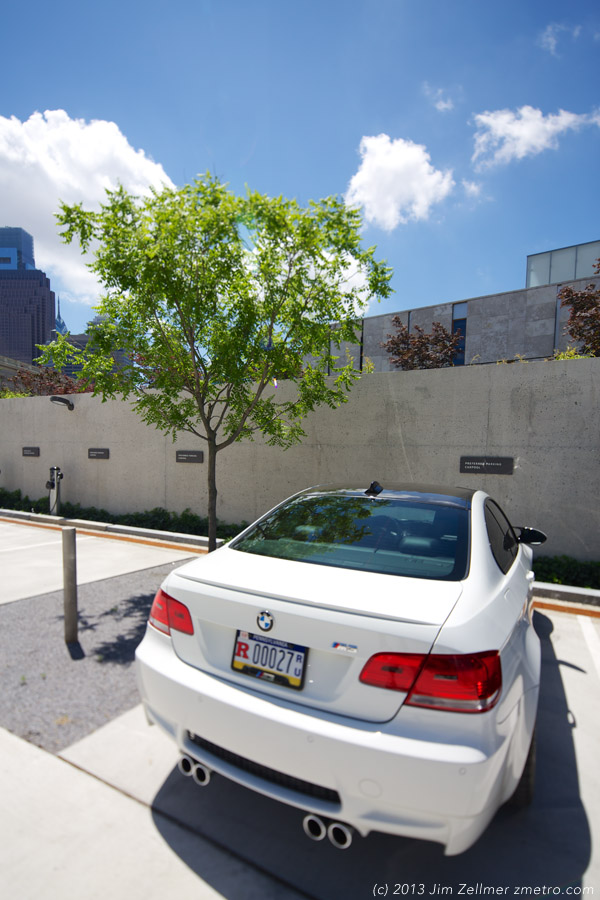Church authorities and historians in Germany have reacted with shock to the news that three original printed pamphlets containing writings by Martin Luther were stolen from a museum in Eisenach, Germany, last week.
A member of staff at the Lutherhaus museum in Eisenach noticed that the 16th-century papers were missing from a glass case at 2 p.m. last Friday afternoon.
Even though the pamphlets are printed, they are unique because they contain hand-written notes by contemporaries of Luther.“Someone removed the fastening that kept the glass case shut. It wasn’t a very strong lock and it can’t be ruled out that this was a crime of opportunity,” the director of the museum, Jochen Birkenmeier, told SPIEGEL ONLINE.
Monthly Archives: July 2013
From Tom Paine to Glenn Greenwald, we need partisan journalism
I would sooner engage you in a week-long debate over which taxonomical subdivision the duck-billed platypus belongs to then spend a moment arguing whether Glenn Greenwald is a journalist or not, or whether an activist can be a journalist, or whether a journalist can be an activist, or how suspicious we should be of partisans in the newsroom.
It’s not that those arguments aren’t worthy of time — just not mine. I’d rather judge a work of journalism directly than run the author’s mental drippings through a gas chromatograph to detect whether his molecules hang left or right or cling to the center. In other words, I care less about where a journalist is coming from than to where his journalism takes me.
Greenwald’s collaborations with source Edward Snowden, which resulted in Page One scoops in the Guardian about the National Security Agency, caused such a rip in the time-space-journalism continuum that the question soon went from whether Greenwald’s lefty style of journalism could be trusted to whether he belonged in a jail cell. Last month, New York Times business journalist Andrew Ross Sorkin called for the arrest of Greenwald (he later apologized) and Meet the Press host David Gregory asked with a straight face if he shouldn’t “be charged with a crime.” NBC’s Chuck Todd and the Washington Post‘s Walter Pincus and Paul Farhi also asked if Greenwald hadn’t shape-shifted himself to some non-journalistic precinct with his work.
We have good cause to abhor the surveillance state
Ah, German hypocrisy! During the cold war, you marched waving “Ami, Go Home” placards, but still let us protect you against the Soviets. Now you moan self-righteously about the National Security Agency and GCHQ reading your emails and listening to your mobile phone. You don’t acknowledge that – unlike the US or the UK – you have had no domestic terror attack in the past 10 years. That’s because we gave you information to prevent them; guess where we got it? Anyway, your Federal Intelligence Service snoops as much as it can. Except it can’t do that much. Whereas we – oh yes, we scan! Could it be that you’re jealous?
That about sums up the American and British response to the uproar about alleged US and UK spying activities in Germany revealed by the whistleblower Edward Snowden.
Sorry, friends: things are not that simple. This topic touches on historical sensitivities here. Our grandparents’ generation feared the early-morning knock of the Gestapo. During the cold war, West and East Germans alike were aware that their divided country was crawling with spooks of all denominations. We recognised that mutually assured espionage helped prop up the bipolar balance of power. (It also made for some superb spy thrillers.) Still, no one misses the sombre paranoia, reinforced in and after the 1970s by the ramping up of West Germany’s domestic intelligence services in response to homegrown terrorism.
Microsoft Reorganization Memorandum Word Cloud

The Microsoft memorandum can be found here.
Ben Thompson: Why Microsoft’s Reorganization is a Bad Idea and Why Microsoft’s reorganization closes the books on an era of computing.
Snowden Backlash: US Media Get Personal
There’s another reason for the united media front: The Guardian is becoming a competitive threat for American media outlets. The first Snowden video interview received almost seven million clicks on the newspaper’s US website. “They set the US news agenda today,” Associated Press star reporter Matt Apuzzo tweeted enviously.
Why? Janine Gibson, the Guardian’s American chief, told the Huffington Post that their competition has a “lack of skepticism on a whole” when it comes to national security. Critical scrutiny, she said, has been considered “unpatriotic” since 9/11.
The greatest humiliation would be if the British usurper won a Pulitzer Prize. Only American media can apply for it, but the Prize committee accepted one submission by the Guardian last year. Its reasoning? The newspaper has an “unmistakable presence” in the United States.
Preferred Parking: Carpool M3

Journalism Is in a Disastrous State — But for a Handful of Millionaire Pundits, It’s a Wonderful Life
Mainstream journalism is, we’re often told, in a state of severe crisis. Newsroom employment began to decline as a result of corporate takeovers in the 1990s. Then the digital revolution destroyed the advertising market, plunging the industry into serious doubt about its very business model.
But times aren’t rough all around. There are many pundits and TV anchors who are doing very well in the media world, racking up millions of dollars from their media contracts, book deals and lucrative speaking fees. Though they don’t generally approach the compensation packages awarded to network morning show hosts like Matt Lauer or evening anchors like Diane Sawyer, they’re not exactly hurting.
Of course, being the boss means the biggest payday—and media company CEOs have been posting unbelievable incomes. In 2012, CBS head Les Moonves made $62 million, Disney’s Robert Iger made $37 million and Rupert Murdoch ofFox took home a comparatively modest $22 million ( New York Times,5/5/13). Don’t feel sorry for Murdoch, though; as No. 91 on Forbes’ list of the world’s richest people, with an estimated net worth of $11.2 billion, he’s unlikely to go to bed hungry.
“Living People Don’t Sell a Car Like This”




Nations Buying as Hackers Sell Computer Flaws
NICOLE PERLROTH and DAVID E. SANGER:
Still, said Mr. Soghoian of the A.C.L.U., “The bounties pale in comparison to what the government pays.” The military establishment, he said, “created Frankenstein by feeding the market.”
In many ways, the United States government created the market. When the United States and Israel used a series of flaws — including one in a Windows font program — to unleash what became known as the Stuxnet worm, a sophisticated cyberweapon used to temporarily cripple Iran’s ability to enrich uranium, it showed the world what was possible. It also became a catalyst for a cyberarms race.
When the Stuxnet code leaked out of the Natanz nuclear enrichment plant in Iran in the summer of 2010, the flaws suddenly took on new value. Subsequent discoveries of sophisticated state-sponsored computer viruses named Flame and Duqu that used flaws to spy on computers in Iran have only fueled interest.
“I think it is fair to say that no one anticipated where this was going,” said one person who was involved in the early American and Israeli strategy. “And today, no one is sure where it is going to end up.”
How selfies became a global phenomenon
It starts with a certain angle: a smartphone tilted at 45 degrees just above your eyeline is generally deemed the most forgiving. Then a light source: the flattering beam of a backlit window or a bursting supernova of flash reflected in a bathroom mirror, as preparations are under way for a night out.
The pose is important. Knowing self-awareness is conveyed by the slight raise of an eyebrow, the sideways smile that says you’re not taking it too seriously. A doe-eyed stare and mussed-up hair denotes natural beauty, as if you’ve just woken up and can’t help looking like this. Sexiness is suggested by sucked-in cheeks, pouting lips, a nonchalant cock of the head and a hint of bare flesh just below the clavicle. Snap!
Afterwards, a flattering filter is applied. Outlines are blurred, colours are softened, a sepia tint soaks through to imply a simpler era of vinyl records and VW camper vans.
All of this is the work of an instant. Then, with a single tap, you are ready to upload: to Twitter, to Facebook, to Instagram, each likeness accompanied by a self-referential hashtag. Your image is retweeted and tagged and shared. Your screen fills with thumbs-up signs and heart-shaped emoticons. You are “liked” several times over. You feel a shiver of – what, exactly? Approbation? Reassurance? Existential calm? Whatever it is, it’s addictive. Soon, you repeat the whole process, trying out a different pose. Again and again, you offer yourself up for public consumption.